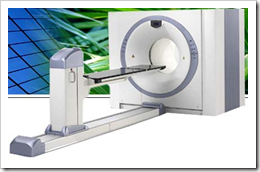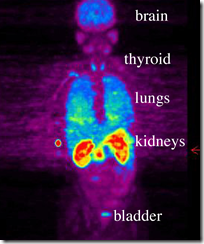“Things that were hard to bear are sweet to remember” - Seneca
So I've decided on a hobby over the last several weeks. In my lifetime I never really had a "hobby" so I am excited to have one in mind now. My hobby-to-be is metal detecting. I'm a long way from doing any actual metal detecting - need to buy a metal detector, which aren't cheap for the type I want to do this hobby. But in the mean time I will be able to do research about places I'll go to find 'buried treasure,' learn techniques, etc. etc. It will be a blast - treasure hunting is right up my alley and it'll be something that the whole family will probably get into doing.
I idea of this hobby was indirectly solidified by a great book I recently read - Raising the Hunley by Brian Hicks & Schuyler Kropf. From Publishers Weekly: The legendary Confederate submarine H.L. Hunley was the first successful underwater warship that is, the first to sink an enemy ship. As chronicled in Raising the Hunley: The Remarkable History and Recovery of the Lost Confederate Submarine, the sub disappeared without a trace in 1864, crippled by a Union ship, and finding it became something of an obsession for many Americans until the vessel was finally brought to shore in 2000. Based on interviews with scientists and historians who studied the Hunley's remains, Charleston, S.C., Post and Courier journalists Brian Hicks and Schuyler Kropf reconstruct the sub's final voyage in this dramatic slice of Civil War history.
I've been reinstalled in my usual room at St. Anthony's North hospital. They are very good to me here - the room I have is the solitary one that has a view to the East and windows that span the wall. The room itself is the largest one they have, which is not important to me but is certainly a nice of the folks here. The room itself is appointed with the usual hospital room items - a couple of chairs, a rolling cart with drawers, a rolling table. To that I've added my small refrigerator and one-cup coffee maker. As much of a hard time as I get for the refrigerator, I can no longer eat the hospital food. Not because of the food itself but because of the smell of the kitchen that is on everything that comes from there. This comment will be akin to the boxer dropping his guard, but I'm like a pregnant woman who can't stand a smell - even well after the first time they smelt it.
The real beauty of my room is the view. Facing towards the east I am treated to the sunrise, the coming and going of Flight for Life helicopters, and trees. The trees, odd as this may sound, are the most important thing to me. Since the beginning of this fight I've spent a great deal of time to having to be still in a bed or chair. I have found that watching the wind in the trees is both distracting and relaxing. The sunrise reminds me, as it has every day since her birth, of the birth of my daughter which came with the most beautiful of sunrises I've ever seen.
Nobody can go back and start a new beginning, but anyone can start today and make a new ending. - Maria Robinson
This round of chemotherapy will mark the halfway mark of my treatment. As I have said, I am truly thankful that I was given this challenge - it truly is probably the only way I would have decided to 'start today and make a new ending' as the above quote says. I've read that cancer often becomes a catalyst for individuals who have it - inspiring some to work for cancer causes others to change careers and on and on. I feel fortunate to have had found the woman of my dreams already, to have a daughter that I wouldn't change a thing about, even to have a dog whom I hold in high regard. In addition to that, although later in life, I was lucky enough to find the work that I know I was 'wired' to do in becoming State Trooper.
The most inspiring change is the opportunity to work for cancer causes. I am excited about working towards supporting police officers, fire fighters, and emergency medical service personnel diagnosed with cancer. I've been the beneficiary already of such a great outpouring of generosity that is helping me! It is going to be such a blessing to be able to contribute to creating that sense of support to emergency personnel in the future. For anyone who is reading this blog that has experience with and ideas for fundraising for cancer victims - I'd love to hear your suggestions.
Aside from my plans specific to emergency workers with cancer, I felt compelled to join Team in Training (something I've threatened to do over the years) and complete a triathlon next May. My 'training' right now is a little limited but I like the challenge.
A sure sign that I'm on a lot of drugs... I already forgot to tell you about one I started taking yesterday and will continue to get during my hospital stay. Sodium bicarbonate, also known as baking soda, is used to relieve heartburn, sour stomach, or acid indigestion by neutralizing excess stomach acid. When used for this purpose, it is said to belong to the group of medicines called antacids. It may be used to treat the symptoms of stomach or duodenal ulcers. Sodium bicarbonate is also used to make the blood and urine more alkaline in certain conditions and this is what it is prescribed to me for. In my case the sodium bicarbonate is given in anticipation of the Methotrexate (information on that follows) because a combination of urine alkalinization and fluid load increases the rate of elimination of the Methotrexate.
Side effects can include: Frequent urge to urinate; headache (continuing); loss of appetite (continuing); mood or mental changes; muscle pain or twitching; nausea or vomiting; nervousness or restlessness; slow breathing; swelling of feet or lower legs; unpleasant taste; unusual tiredness or weakness; increased thirst; and, stomach cramps.
Today's lineup is limited to Sodium Bicarbonate, Methotrexate, Zofran, and Decadron. Methotrexate belongs to the group of medicines known as antimetabolites which means it is capable of blocking the metabolism of cells. (Metabolism consists of the production and destruction of important components of the cell as well as the production of energy for use by the cell.) Methotrexate is an anticancer drug used in the treatment of lymphoma and certain forms of leukemia. It is also given to treat some forms of cancers of the uterus, breast, lung, head, neck, and ovary. Methotrexate blocks an enzyme needed by the cell to live. This interferes with the growth of cancer cells, which are eventually destroyed. Since the growth of normal body cells may also be affected by Methotrexate, other effects will also occur.
Methotrexate can be well tolerated, but also can cause severe toxicity which is usually related to the dose taken. Along with their needed effects, medicines like Methotrexate can sometimes cause unwanted effects such as blood problems, kidney problems, stomach or liver problems, loss of hair, and other side effects. These and others are described below. Also, because of the way these medicines act on the body, there is a chance that they might cause other unwanted effects that may not occur until months or years after the medicine is used. Side effects include: black tarry stools, blood in urine or stools, bloody vomit, diarrhea, joint pain, reddening of skin, itching or hives, swelling of face or hands, swelling or tingling in mouth or throat, chest tightness, trouble breathing, blistering/peeling/red skin rash, blue lips or fingers, seizures, numbness, stomach pain, swelling of feet or lower legs, sores in mouth and on lips, loss of appetite, nausea or vomiting, blurred vision, confusion, convulsions (seizures), cough, pinpoint red spots on skin, shortness of breath, unusual bleeding or bruising, back pain, cough or hoarseness accompanied by fever or chills, dark urine, dizziness, drowsiness, fever or chills, headache, lower back or side pain accompanied by fever or chills, painful or difficult urination accompanied by fever or chills, unusual tiredness or weakness, yellow eyes or skin, acne, boils, pale skin, and skin rash or itching.
This medicine may cause a temporary loss of hair in some people. After treatment with Methotrexate has ended, normal hair growth should return. After stopping this medicine, it may still produce some side effects, to include: back pain, blurred vision, confusion, convulsions (seizures), dizziness, drowsiness, fever, headache, and unusual tiredness or weakness.
Zofran is used for the prevention of nausea and vomiting caused by radiation therapy and chemotherapy for cancer, and, in some cases, to prevent these problems following surgery. Zofran blocks serotonin receptors known as 5HT3-receptors. 5HT3-receptors are found in the neurons (nerve cells) of the gastrointestinal system, and also in the area of the brain that controls vomiting. Chemotherapy agents release serotonin from gut cells, which stimulates these receptors and causes vomiting. Zofran's blockade of the 5HT3-receptors helps prevent and treat this nausea and vomiting. Side effects may include: Blurred vision, constipation, diarrhea, dizziness, fatigue, headache, anxiety, difficulty breathing, difficulty urinating, malaise, change in liver enzymes, flushing, hiccups, chest pain, tremors, uncontrolled muscle movements, change in muscle tone, drowsiness, fever, headache, itching, low blood pressure, shivers, slow heartbeat, chills, and abdominal pain with cramps, dizziness, fatigue, and general weakness. Not bad for the drug to help offset nausea and vomiting huh?
Decadron is a corticosteroid that reduces swelling and inflammation. Decadron is also used for the prevention of nausea and vomiting. Side effects include: abdominal distention, allergic reactions, blood clots, bone fractures and degeneration, bruises, cataracts, congestive heart failure, convulsions, "cushingoid" symptoms (moon face, weight gain, high blood pressure, emotional disturbances), excessive hairiness, fluid and salt retention, general feeling of illness, glaucoma, headache, vomiting of blood, hiccups, high blood pressure, high blood sugar, hives, increased appetite, black or tarry stools, puffing of the face, increased eye pressure, increased pressure in head, increased sweating, increases in amounts of insulin or hypoglycemic medications needed in diabetes, inflammation of the esophagus, inflammation of the pancreas, irregular menstruation, swelling of the ankles or feet, prolonged sore throat or fever, loss of muscle mass, low potassium levels in blood (leading to symptoms such as dry mouth, excessive thirst, weak or irregular heartbeat, and muscle pain or cramps), muscle weakness, nausea, osteoporosis, peptic ulcer, breathing difficulties, mental/mood changes, perforated small and large bowel, poor healing of wounds, protruding eyeballs, thin skin, tiny red or purplish spots on the skin, torn tendons, vertigo, and weight gain.
Think I will wrap it up for today. If you are so inclined, please think of my oncologist's mother as she recovers from a serious surgery. I'll have more tomorrow.

